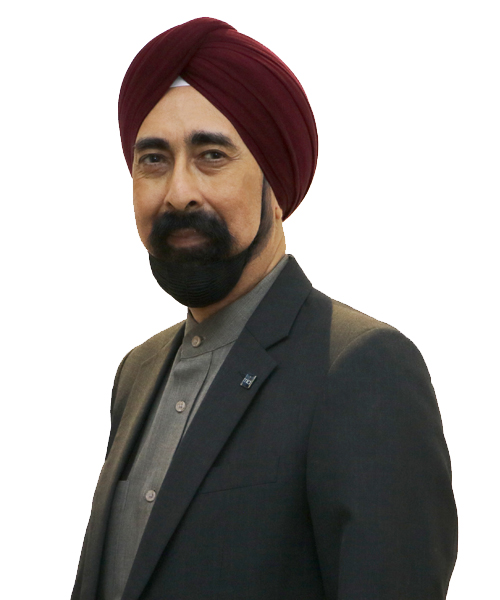By the MIA Ethics Standards Board (ESB)
As governance and sustainability matters take a front seat in the post-COVID phase of economic revival, ethical dilemmas will also abound.
In line with its mandate to uphold the public interest as intended by the Accountants Act 1967, the Malaysian Institute of Accountants is accelerating its ethics advocacy and education to ensure that members adhere to the highest professional and ethical standards of conduct.

“In serving the public interest, it is crucial to set ethics (including independence) standards as a cornerstone for ethical behavior in business and organisations. Upholding ethics is also essential to ensure public trust in financial and non-financial information that is fundamental to the proper functioning and sustainability of organisations, financial markets and economies worldwide,” stated Dr Veerinderjeet Singh or Dr Vee (as known in the industry), the Chairman of the MIA’s Ethics Standards Board (ESB).
Widely known as the tax guru of Malaysia having accumulated nearly 40 years of working experience in taxation across diverse roles in regulatory, practice and academia, Dr Vee is strongly committed and passionate about good governance and ethical leadership. “Having been in various leadership roles where I saw lots of diversity in terms of ethical approaches and how organisations handle ethical dilemmas, I felt it was an opportune time to get involved in the Ethics Standards Board and push ethics in the accountancy profession forward in a meaningful and effective manner,” explained Dr Vee.
Below, Dr. Vee shares his thoughts on the way forward for ethics in the profession:
One of MIA’s strategic objectives is to nurture the professional values and ethics of members to uphold a strong accountancy profession. What is the vision and the direction of the ESB in realising this strategic objective?
The ESB has been around for quite some time but apparently still does not feature prominently to MIA members. The ESB must engage members more often and speak up louder on issues of ethical challenges to the public at large. We have to continue to play our role better. As the previous Chair has stated before, ethics is an applied philosophy. Thus, the ESB needs to advocate the profession’s ethical values and demonstrate their application. In my mind, whatever is said and done must be done with good old common sense.
We plan to have another review of our ESB Terms of Reference soon and discuss the initiatives that the ESB should be driving and focusing on given the current state of the profession and the economy. We welcome and hope to garner more varied participation from other fellow professionals and institutions. This will allow greater input from a wider group of stakeholders and exchange of viewpoints.
How can ethics be inculcated and nurtured in accountancy professionals not only at work but also in every aspect of life?
We have to believe that ethics cannot be codified in totality. Accountants are accountable and this behaviour cannot be left to a set of codes/rules or by-laws alone. To be respected, trust must be earned and to do so one must be trustworthy first. As such, the education system, one’s upbringing and the environment all play a crucial role in moulding one’s character, values and beliefs.
Students and staff should be nurtured properly. We need to place greater emphasis on ethics in schools, universities and the workplace. We must spend adequate time with the students and the staff and share our experiences. We must guide them on ethical precepts or practices that we have observed during our professional duties.
We hear about ethical dilemmas being encountered at the workplace. How can they be addressed? Please also share any practical experience that you may have and tips or pitfalls to avoid.
Any dilemma should be dealt with in strict confidence and with due process diligently observed. We must differentiate issues accordingly. At times they may be procedural, legal, or financial concerns and not necessarily ethical concerns. The prevalent rules should be allowed to function. We must trust the checks and balances that exist and change them if they are not working effectively. My experience on the Board of a listed GLC has also shown that we must manage the grapevine or office gossip by adhering to legal and formal ground rules.
Where there are material discrepancies, we must always investigate and substantiate these by obtaining independent opinions. We should avoid taking short cuts or cutting corners. More importantly, we must trust and stand by our fellow professionals as we know the high ethical standards that we live up to in our professional conduct. Keep senior management in the loop at the onset, not at the end, of any suspicious transactions. Keep the Board updated on relevant developments and do not wait to update them at the next scheduled meeting. Matters should be discussed and we should not try and sweep anything under the carpet.
What would you consider to be the hallmarks of a good ethical corporate culture in an organisation?
The tone from the top must be clearly communicated across the organisation. What the leaders say must be internalised by all and acted upon willingly. Mutual respect is key to ensure that a healthy and open conversation takes place at all levels of engagement by all stakeholders. Any organisation of high repute maintains a certain degree of professional standards by which accountability is an expected duty that binds everyone regardless of their respective roles. A good culture of ethical conduct will emerge over time once these factors – clear communication, responsible leadership and high professional standards – are clearly articulated and applied.
What are some of the salient developments in the ethics code included in the MIA By-laws recently that members should take note of?
Various revisions have been made and these aim to help reinforce the responsibility that professional accountants have to always act in the public interest. The Code and by extension the By-Laws, highlight that professional accountants are expected to comply with the spirit and not just the letter of the Code.
The revised Non-Assurance Services (NAS) provisions contain substantive revisions that clarify and address the circumstances in which firms and network firms may or may not provide a NAS to an audit and assurance client. The revised provisions expressly prohibit firms and network firms from providing certain types of NAS to their audit clients, especially when they are Public Interest Entities (PIE).

Highlights include enhanced provisions involving the identification and evaluation of self-review threats that might be created by the provision of NAS to an audit client and provisions to strengthen and improve the quality of a firm’s communication to those charged with governance (TCWG) on NAS-related matters especially for audit clients that are PIEs.
As for the revisions to the fee-related provisions of the Code, there is now a clear prohibition on firms allowing the audit fee to be influenced by the provision of services other than audit to the audit client. In the case of PIEs, there is a requirement to cease to act as auditor if fee dependency on the audit client continues beyond a specified period. Akin to the NAS provisions, there are increased requirements to communicate fee-related information to TCWG to assist them in their judgments about auditor independence.
The ESB recently responded to the IESBA’s Exposure Draft, Proposed Revisions to the Code Addressing Tax Planning and Related Services. Why are the proposed revisions important? What would you consider to be some of the key comments raised to the IESBA on this Exposure Draft?
Notable global events involving tax avoidance have come to light in recent years. As these have significant public interest implications, global bodies have also become increasingly focused on transparency and better disclosure of tax practices. Considering these revelations and in the interest of maintaining the relevance and robustness of the Code, the International Ethics Standards Board for Accountants (IESBA) made the decision to develop a principles-based framework to guide the ethical conduct of professional accountants when providing tax planning and related services.
When the ESB formulated its response to the IESBA’s exposure draft on this topic, we generally supported the proposed revisions to guide the professional accountants involved in tax planning and related services. However, in areas such as “Disagreement with Management”, the ESB also urged the IESBA to consider if the actions proposed were practical for the professional accountant by highlighting potential scenarios. Overall, the ESB also requested further clarity or guidance on the drafted standards in addressing certain pertinent situations to aid consistent application among the professional accountants.
Given that sustainability is a hot topic these days and there is demand for a professional-agnostic code of ethics in dealing with sustainability disclosures, do you consider the international code of ethics for accountants to be well-poised to be established as an appropriate and accepted baseline?
With the heightened demand for organisations to report on ESG/sustainability initiatives and performance, it is a matter of time that the same rigour by which financial statements are prepared and audited be required to be applied to such valuable other information contained in annual reports. A global baseline of ethical standards for assurance providers as well as preparers would be imperative to uphold integrity, avoid conflicts of interest, enhance accuracy and reliability and ensure a level playing field. These factors would in turn, promote and engender stakeholder trust in sustainability reporting particularly when greenwashing is rising as a topic of discussion. The global reach and efficacy of the international ethics standards (the Code) as issued by the IESBA as well as the fact that the Code having stood the test of time over many years of development, use and enforcement should be compelling reasons for using the Code as a baseline for all professionals engaged in sustainability reporting. However, to make this happen, strong regulatory backing and reforms would be imperative and urgent.
What do you consider to be the highlights of your career and experience that would bode well in carrying out your role as the new Chair of the ESB?
My experience has given me lots of exposure to ethical issues and dilemmas whether as a practitioner or a board member or as an individual. Serving on the Councils of MIA and MICPA provides me with a broad overview of areas where accountants face various issues including complying with the ethics guidelines and code of conduct. That experience will assist me in my role on the Ethics Standards Board in terms of working with the members in charting the way forward and undertaking suitable initiatives to continue to shine the light brightly on ETHICS and the need to walk the talk.







